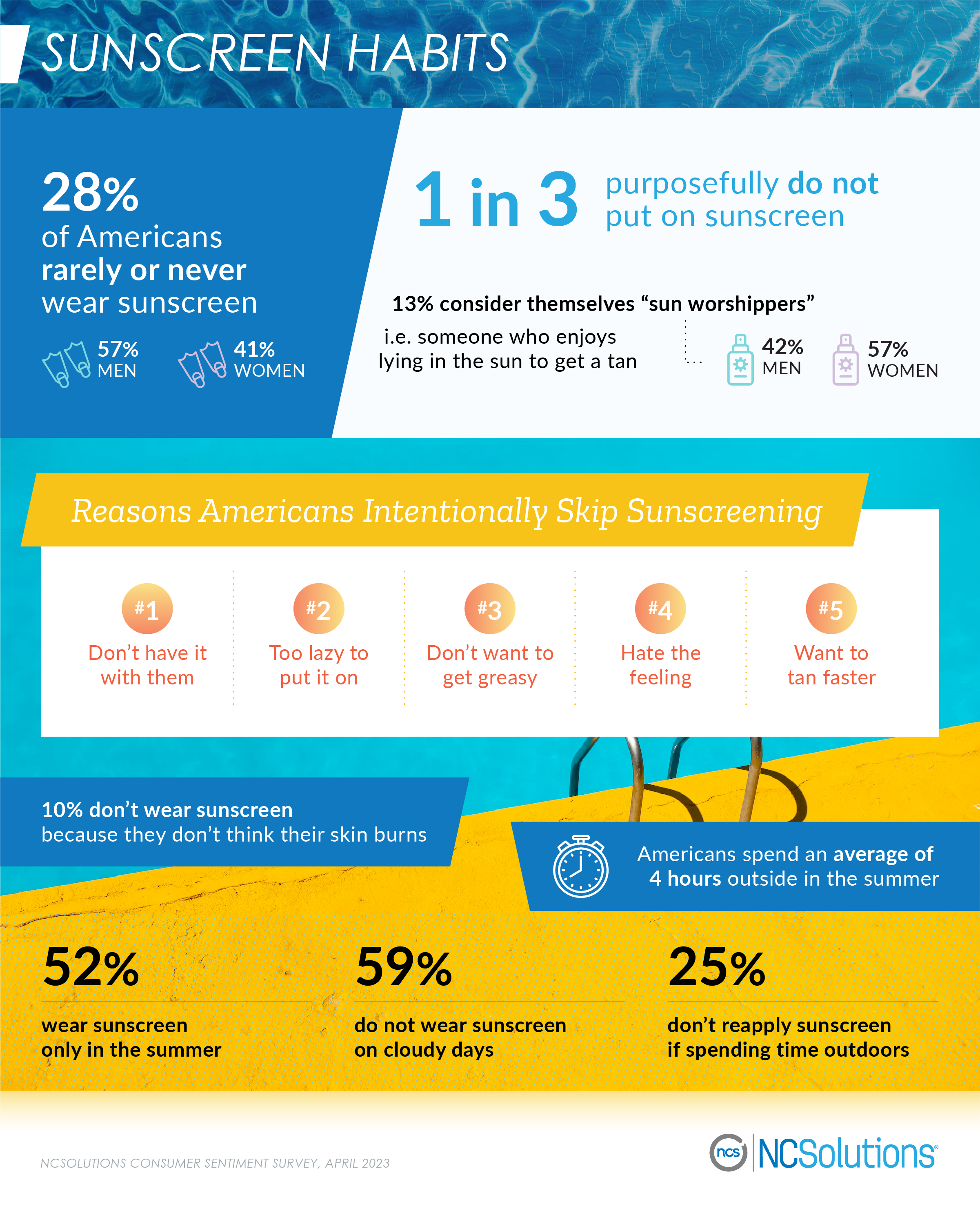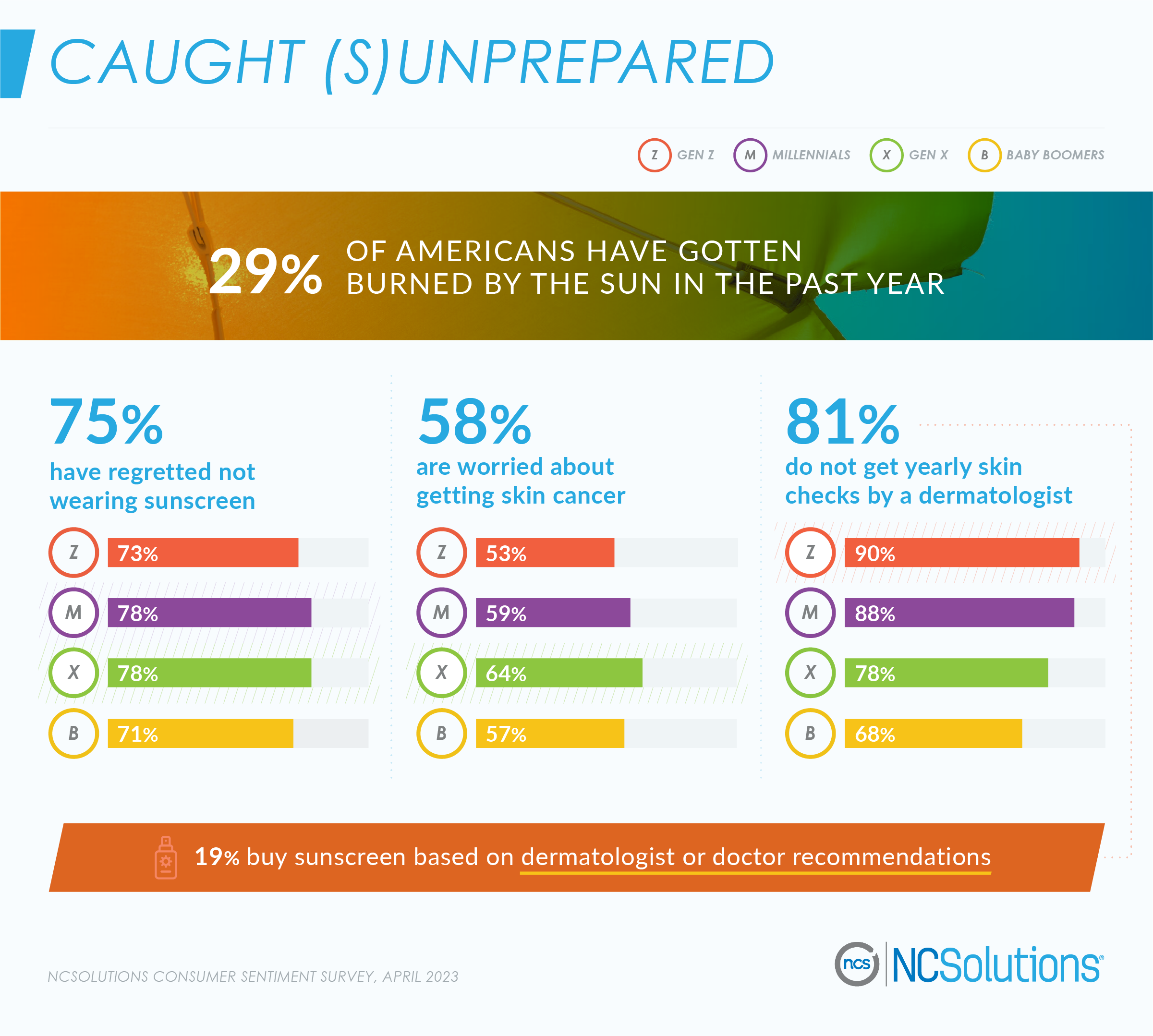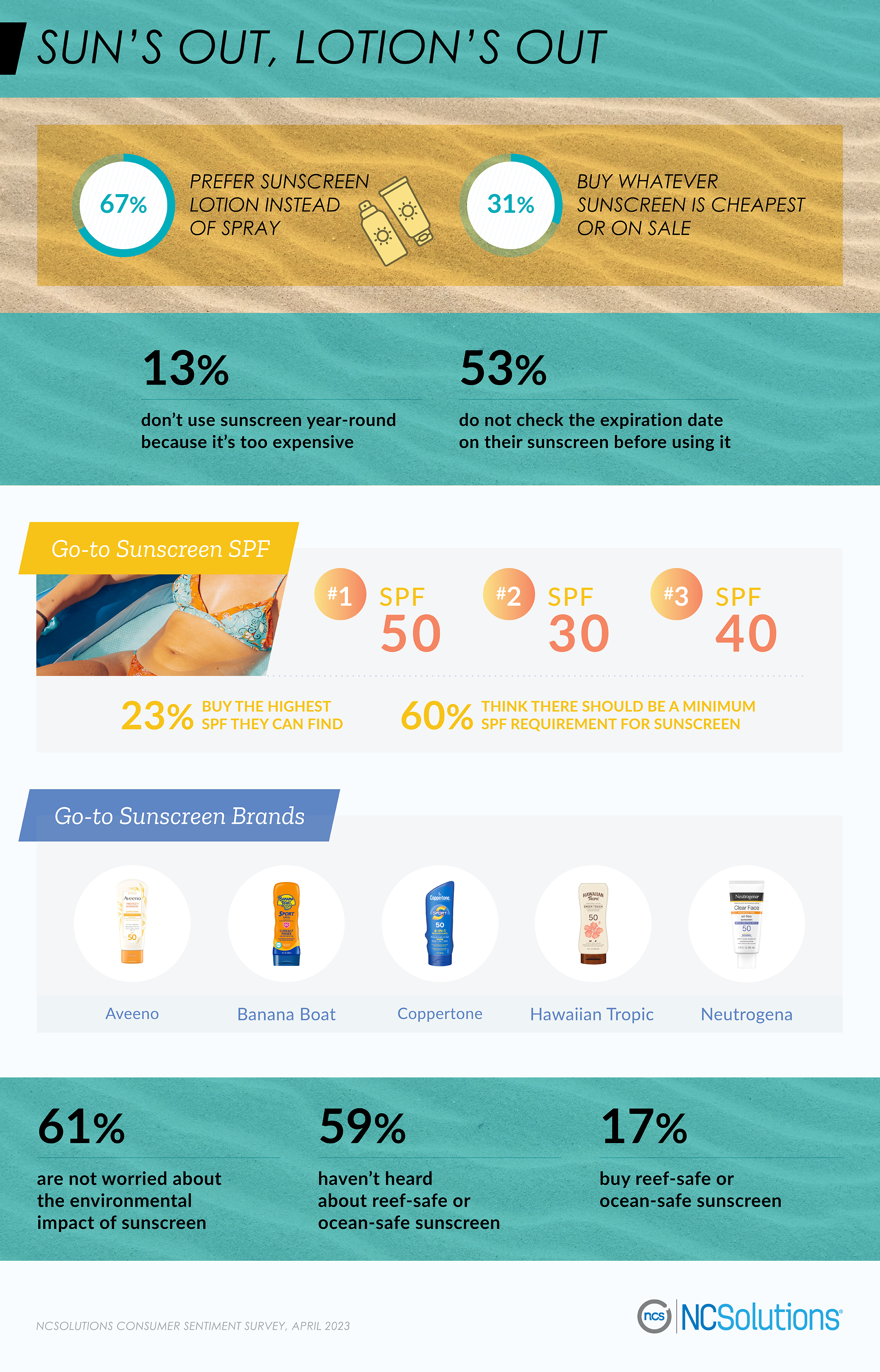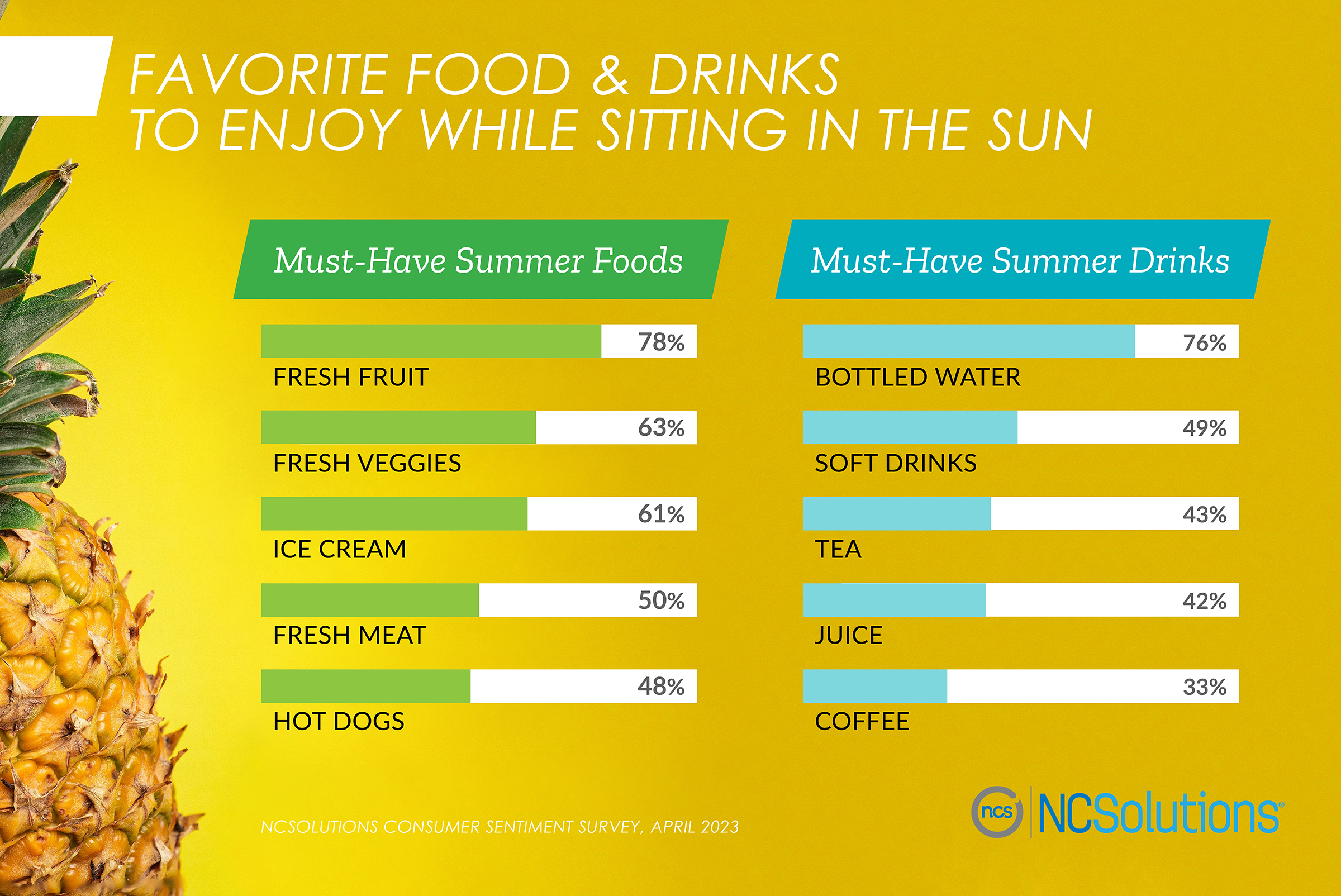To SPF or Not to SPF? Report Finds One in Three Americans Purposefully Don’t Use Sunscreen
There’s nothing like the feeling of the warm sun on your skin while you sit by the pool, enjoying a cold glass of lemonade and some watermelon. While many Americans can picture themselves enjoying this exact scenario, a new survey shows some forget one vital element: sunscreen.
Surprisingly, many Americans don’t just forget to protect their skin, but some actually admit they don’t use sunscreen on purpose, according to our new consumer sentiment survey on the subject of summer and skincare.
 Sunscreen protects your skin from harmful rays and keeps it from burning, but it appears many Americans aren’t too worried about that…or are prepared to deal with the consequences of their inaction. Nearly one in three (28%) admitted to rarely or never wearing sunscreen. Among those who don’t, more men (57%) than women (41%) put protecting their skin on the back burner.
Sunscreen protects your skin from harmful rays and keeps it from burning, but it appears many Americans aren’t too worried about that…or are prepared to deal with the consequences of their inaction. Nearly one in three (28%) admitted to rarely or never wearing sunscreen. Among those who don’t, more men (57%) than women (41%) put protecting their skin on the back burner.
One in three Americans admit they don’t use sunscreen on purpose. The primary reasons? They either don’t have it with them or they’re too lazy to put it on. One in 10 shared that they don’t use sunscreen because they don’t think their skin can be burned and 8% avoid it because it’s too expensive.
While dermatologists recommend sunscreen year-round, more than half of Americans (52%) only reach for it when summer rolls around. Twenty-two percent use sunscreen year-round, while 20% use it inconsistently throughout the year. However, 59% do not wear it on cloudy days.
Sunburn & Skin Concerns

Many Americans have dealt with some painful consequences related to the sun. Nearly one in three (29%) have gotten a sunburn in the past year, and 75% have regretted not wearing sunscreen.
Others are concerned about the long-term effects of sunburn. Nearly six in 10 (58%) are worried about getting skin cancer, and more women (52%) than men (46%) are concerned about this prospect. Across the generations, there is not a lot of difference in how people feel about sunscreen and skin cancer.
The one generational gap observed is regarding yearly skin checks. Sunscreen statistics show 81% don’t get yearly skin checks from dermatologists. However, 90% of Gen Zers say they skip this annual assessment, compared to just 68% of baby boomers. Nearly one in five (19%) Americans say they turn to dermatologists or doctors for recommendations about the best SPF to use.
Americans’ Sunscreen Preferences

According to the latest sunscreen statistics, one in five (20%) Americans put summer skin products in their shopping cart every few months. Most buy these products from superstores (63%), but a number of shoppers also purchase them online (44%) or at a pharmacy/drug store (34%).
Nearly half (45%) say they spend about $10-20 on summer skin products every month, according to the consumer sentiment survey.
According to NCS purchase insights, U.S. households bought fewer units of sunscreen products in June 2022, as inflation drove the price of these items up 5%, compared to the same period in 2021. That approach may have backfired, since they also bought 4% more units of after-sun treatment products in June 2022, compared to June 2021, even though these products increased 6% in price over the same period.
When shopping for sunscreen, survey respondents say their go-to brands are:
- Aveeno
- Banana Boat
- Coppertone
- Hawaiian Tropic
- Neutrogena
However, not everyone is loyal to a specific brand. Nearly one in three (31%) buy the least expensive sunscreen or what’s on sale.
Two-thirds (67%) of Americans prefer a lotion to a spray. In addition, most prefer a sun protection factor (SPF) of 40 or higher, and, 23% admit they buy the highest SPF they can find. Three in five Americans believe sunscreen products should have a minimum SPF requirement.
Once people buy sunscreen, they often use it, even if it’s expired. Over half of Americans (53%) shared they do not check the expiration date on their sunscreen before applying it.
Most Americans (61%) say they aren’t worried about the environmental impact of sunscreen. Only one in six (17%) buy reef-safe or ocean-safe sunscreen and 59% haven’t heard about this option.
Best Summer Food & Drinks

While soaking up the sun, Americans often make the most of the experience with good food and drinks. We asked Americans to rank their favorite foods and discovered the top choice is fresh fruit. Americans also love fresh veggies, ice cream, or fresh meats on the grill.
Following the growing sober curious trend, it appears more Americans are kicking alcohol to the curb. More than three in four (76%) said their go-to summer drink is bottled water, followed by a soft drink or tea.
Whatever you decide to nibble or sip to cool off in the summer sun, we hope you don’t forget to apply your sunscreen during this warm season. Your skin will thank you.
If you want to make your advertising campaigns more effective for your consumer packaged goods brands (CPG), click here to learn more about how NCSolutions can help. You can find more information here about the work we do to help advertisers with CPG marketing.
Sunscreen FAQs
There are many sunscreen options out there that can make it overwhelming to figure out what is best when it comes to protecting your skin from the sun. Here are some frequently asked questions when it comes to sunscreen.
How often should you wear sunscreen?
Doctors recommend that you wear sunscreen daily. If you’re spending a day outside, you should continually reapply throughout the day, reapplying about every two hours.
What does SPF mean?
SPF stands for sun protection factor.
What does the SPF number mean?
SPF sunscreens with a higher number, such as 50 or above, have a higher protection from sunburn. However, SPF sunscreens with a lower number such as 15 can still provide sun protection and can be useful for shorter periods of sun exposure. While many people think the SPF numbers refer to the amount of time you’ll be protected from the sun, that is not the case according to the FDA.
What is broad spectrum sunscreen?
If sunscreen has a label saying “broad spectrum” that means it protects from two different types of ultraviolet rays: ultraviolet A (UVA) and ultraviolet B (UVB)
Does sunscreen expire?
Sunscreen does expire. Check your product to find an expiration date. If there is none, it expires after three years according to FDA regulations.
What is reef-safe sunscreen?
For those living near or visiting coral reefs, there are certain reef-friendly sunscreens. These mineral-based sunscreens are often made with titanium dioxide or zinc oxide.
About NCSolutions
Learn more about how NCSolutions services can help you make your advertising campaigns more effective for your consumer packaged goods brands (CPG). Find more information here about the work we do to help advertisers with CPG marketing.
About the consumer sentiment survey
In April 2023, we commissioned a consumer sentiment survey of 1,000 people to ask them about their sunscreen habits. Twenty-five percent were Gen Z, 26% were Millennials, 25% were Gen X, and 24% were Baby Boomers. Respondents ranged in age from 21 to 77, with an average age of 43. Fifty percent were men, 48% were women, and 2% were non-binary.
About the NCS Purchase Data
NCS provides purchase insights to brands to help them optimize, measure, and enable sales-based outcomes.NCS’s representative and balanced consumer CPG purchase data set consists of the industry’s preeminent and comprehensive sources. It is inclusive of actual purchase data (transaction information) from big-box retailers, supermarkets, drug stores, convenience stores and other retail channels at which American households buy CPG products spanning 340+ grocery categories. The NCSolutions Purchase Data was analyzed in May 2023.
For media inquiries, please contact ncspress@ncsolutions.com.
Fair Use
When using this data and research, please attribute by linking to this study and citing NCSolutions.


